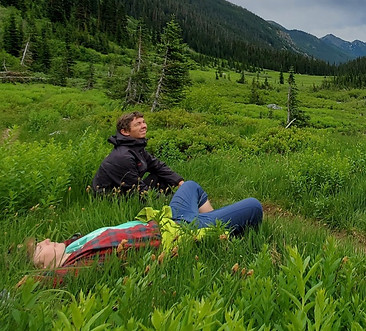Hannah Bliss, LMHC

Areas of Focus:

depression & anxiety
relationship issues
self development
relational trauma
life transitions
burnout
LGBTQIA+
body image
eating disorder
Therapy style:
Relational
Psychodynamic
Person-centered
Existential
& integrated elements:
Psychoanalytic theory
Attachment theory
Trauma Informed Stabilization Treatment
Parts work (internal family systems)
Free initial consultation
I offer a free 15 minute initial consultation, which takes place on a video call. This is a conversation for you and I to meet and discuss working together. You can tell me about what brings you to therapy, voice hopes and concerns, and ask questions. I will listen and make sure I can meet your needs, tell you a little more about therapy with me, and go over logistics. Meanwhile we are getting a sense of how it might feel to start therapy together. From there we can schedule a first session, or I will do my best to offer referrals as needed.
What is therapy for?
Therapy is
self-discovery and recovery,
wrestling with complexity,
exploring relationships with yourself and others,
and learning new ways to cope,
communicate,
and care for yourself.
There can be change,
and there can be acceptance.

What to expect in therapy:

Plan to commit to weekly therapy sessions. Therapy works best when you commit to yourself, and keep showing up.
It sometimes gets harder before it feels better. Giving attention and care to the parts of ourselves that have long been hidden, ignored or unexplored can have the immediate effect of feeling overwhelming, scary and hard. This is part of the process.
We will work together to create safety in our relationship. I use a here-and-now approach to invite feedback and processing of our interactions. I offer transparency in the therapeutic process, to empower you with the choice to engage in and trust the work.
It can take time. Often people ask "but what do I do?" Specific strategies are valuable for safety and stability. In other areas of therapy, our minds and bodies will not be rushed, and our work may be more about being than doing. We can slow down, we can be with your pain and fear, and we can find what healing and growth might look like for you.

"It's the relationship that heals."
Irvin Yalom
